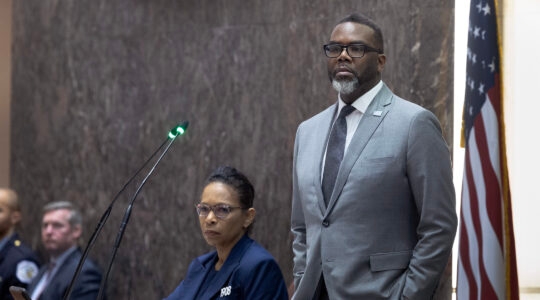Unlike the annual United Jewish Communities General Assembly, which attracts several thousand Jewish federation workers and funders and provides a pretty good cross-section of representation from the spectrum of the Jewish communal world, the Jewish Funders Network’s annual conference is more for the creme-de-la-creme of the Jewish philanthropic world.
Just to become a member of the JFN, which provides a peer network and philanthropic consulting services to more than 1,000 funders, one must give at least $25,000 a year to Jewish causes. But in truth, most members give far, far more.
The conference this year is focused on Israeli philanthropy and how the burgeoning philanthropic class here can work in partnership with its well-established North American Jewish counterpart.
The list of 350 attendees at the posh David Citadel, just outside the Old City, is some show of Jewish wealth – one that could probably out-donate the entire federation system several times over.
But that the conference is here in Jerusalem is a nod to the fact that philanthropy is indeed taking hold here in the Jewish state, and that an Israeli social service system that was once supported solely by the generosity of the broader Jewish world, could be on the cusp of self-sufficiency – or at least a lesser dependence on foreign charity.
Since the Lebanon war, when several members of Israel’s mega-wealthy class stepped up with huge funds – most notably Israel Discount Bank Chairman Nochi Dankner, who pitched in a 100 million shekel pledge after the war to rebuild the Galilee – Israeli mega-donors are seemingly coming out of the woodwork, often drawn out by partnerships with American philanthropists.
But they are slowly starting to take ownership of Israel’s non-profit world. When reports last month surfaced that the Jewish Agency for Israel was considering major structural changes, several sources told me that those reforms were being pushed by Israeli donors.
And it was Israelis who urged JFN to hold its conference here in Israel.
Despite the necessary trek across the Atlantic, the conference has drawn representatives from all of the giants in Jewish American giving, from the Harry and Jeanette Weinberg Foundation, to the Jim Joseph Foundation, to the Wexner Foundation to the Charles and Lynn Schusterman Foundation. And Charles Bronfman seems to be the star of the show. (A notable absentee is any representative of the year-old Adelson Family Foundation, which was started by casino mogul Sheldon Adelson, the third wealthiest American, and after pledging some $60 million to Birthright Israel in the past year and giving $25 million to the Yad Vashem Holocaust memorial, seemed poised to become the major Jewish foundation.)
There are also more than 150 Israeli philanthropists on hand, including some of the bigs such as Raya Strauss and ex-Russian oligarch billionaire Leonid Nevzlin. (He may have lost half of his wealth when many of his assets were seized by Vladimir Putin, but Nevzlin told JTA in a visit in our offices last year that he is still worth about a $1 billion.) And the Israelis are well represented among the scheduled speakers, especially during the plenary sessions.
JTA has documented Jewish history in real-time for over a century. Keep our journalism strong by joining us in supporting independent, award-winning reporting.





